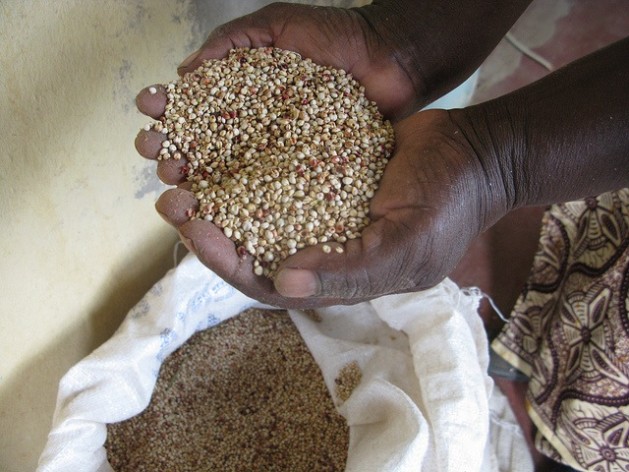The Vast Potential of the Human Spirit — Global Issues
LONDON, Sep 15 (IPS) – With hope and courage, we must rise to the challenges before us. We must rise to the challenge of a world set afire by climate change, forced displacement, armed conflicts and human rights abuses. We must rise to the challenge of girls being denied their right to an education in Afghanistan. We must rise to the challenge of a global refugee crisis that is disrupting development gains the world over. We must rise to the challenge of brutal and unconscionable wars in places like Sudan and Ukraine that are putting millions of children at risk every day.
By ensuring every single child has access to quality education and embracing the vast potential of the human spirit – especially the 224 million girls and boys caught in emergencies and protracted crises that so urgently need our support – we can rise to this challenge. It’s a chance for girls with disabilities like Sammy in Colombia to find a nurturing place to learn and grow, it’s a chance for girls that have been forced into child marriage like Ajak in South Sudan to resume control of their lives, it’s a chance for refugees like Jannat in Bangladesh to find hope and dignity once more.
As Education Cannot Wait (ECW), the United Nations global fund for education in emergencies, has successfully completed its first strategic plan period and now enters its second strategic period, we are seeing time and again the power of education in propelling global efforts to deliver on the promises outlined in the 2030 Agenda for Sustainable Development, the Paris Agreement, the Convention on the Rights of the Child, and other crucial international frameworks. By ensuring quality holistic education for the world’s most marginalized and vulnerable children in crisis settings, we invest in human capital, transform economies, ensure human rights, and build a more peaceful and more sustainable future for all.
The achievements outlined in ECW’s 2022 Annual Results Report tell a story of a breakout global fund moving with strength, speed and agility, while achieving quality. Together with a growing range of strategic partners, ECW reached 4.2 million children in 2022 alone. It was also the first time girls represented more than half of the children reached by ECW’s investments, including 53% of girls at the secondary level, which is a significant milestone in achieving the aspirational target of 60% girls reached. Now in its sixth year of operation, ECW has reached a total of 8.8 million children and adolescents with the safety, power and opportunity of a quality, inclusive education. An additional 32.2 million children and adolescents were reached with targeted interventions during the COVID-19 pandemic.
We are also seeing a global advocacy movement reaching critical mass, together with stronger political commitment and increased financing for the sector. In 2022, funding for education in emergencies was higher than ever before. Total available funding has grown by more than 57% over just three years – from US$699 million in 2019 to more than US$1.1 billion in 2022.
However, the needs have also skyrocketed over this same period. Funding asks for education in emergencies within humanitarian appeals have nearly tripled from US$1.1 billion in 2019 to almost US$3 billion at the end of 2022. This means that while donors are stepping up, the funding gap has actually widened, and only 30% of education in emergencies requirements were funded in 2022.
With support from key donors – including Germany, the United Kingdom and the United States, as the top-three contributors among 25 in total, such as visionary private sector partners like The LEGO Foundation – US$826 million was announced at the ECW High-Level Financing Conference in early 2023. Collective resource mobilization efforts from all partners and stakeholders at global, regional, and country levels also helped unlock an additional US$842 million of funding for education in-country, which was contributed in alignment with ECW’s Multi-Year Resilience Programmes in 22 countries, and thus illustrates strong coordination by strategic donor partners who work in affected emergencies and protracted crises-contexts.
We must rise to this challenge by finding new and innovative ways to finance education. To date, some of ECW’s largest and prospective bilateral and multilateral donors have not yet committed funding for the full 2023–2026 period, and there remains a gap in funding from the private sector, foundations and philanthropic donors. In the first half of 2023, ECW faces a funding gap of approximately $670 million to fully finance results under the Strategic Plan, 2023–2026, to reach more than 20 million children over the next three years.
The investments will address the diverse impacts of crisis on education through child-centred approaches that are tailored to the needs of specific groups affected by crisis, such as children with disabilities, girls, refugees, and vulnerable children in host communities. These investments entail academic learning, social and emotional learning, sports, arts, combined with mental health and psycho-social services, school feeding, water and sanitation, as well as a protection component.
Since ECW became operational, we have withstood the cataclysmic forces of a global pandemic, a rise in armed conflicts that have disrupted social and economic security the world over, the unconscionable denial of education for girls in Afghanistan, floods and droughts made ever-more devastating by climate change, and other crises that are derailing efforts to deliver on the Sustainable Development Goals.
Now is the time to come together as one people, one planet to address the challenges before us. Now is the time to embrace the vast potential of the human spirit. With education for all, we can make sure girls like Sammy, Ajak and Jannat are able to reach their full potential, we can build a better world for generations to come.
Rt. Hon. Gordon Brown is United Nations Special Envoy for Global Education
IPS UN Bureau
Follow @IPSNewsUNBureau
Follow IPS News UN Bureau on Instagram
© Inter Press Service (2023) — All Rights ReservedOriginal source: Inter Press Service
Check out our Latest News and Follow us at Facebook
Original Source




